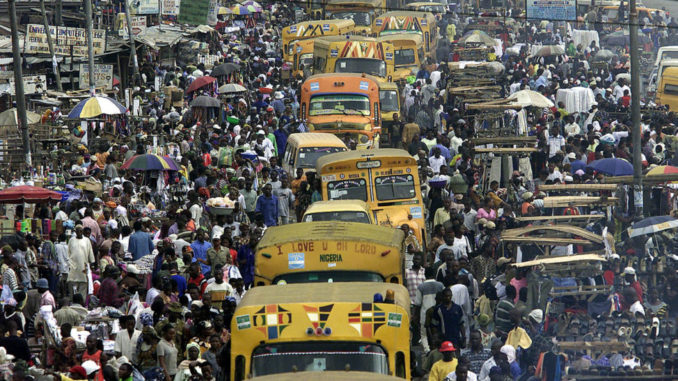
It is in our enlightened self-interest to promote the values of the welfare state. It is one sure way of stemming the tide of banditry, kidnapping, armed robbery, insurgency, advance fee fraud or 419 and the myriad of novel social vices that have become the permanent badge of our beleaguered situation and for which innocent Nigerian citizens are pilloried worldwide. A populace that is made content in terms of a programmed fair and equitable distribution of the common patrimony is less prone to anti-social or “insurgent reprisals” flowing from a real feeling or a sense of privation or deprivation. It is less likely to “check out” in large droves in forlorn search for elusive or xenophobia-rife greener pastures. Not a few people will be angered by their exclusion from the national dining hall or from the food-ladling table particularly as they possess consciousness that nature has factored their citizenship or membership portion into the pool of the nation’s wealth.
The concept of social security derives from a vision of a more equitable arrangement of society in which the state assumes a general responsibility for ensuring the individual’s security through organised collective action against the risks of economic and social life. Its thrust is to pool resources to provide benefits and services to the persons protected in the occurrence of a prescribedly-envisaged contingency. So the exclusion of any member of society from the enjoyment of such benefits or the defiant non-establishment of such regime of community responsibility is invidious or likely to cause dis-affection or envy.
Even as Nigeria is a member of the international community, she has been remiss regarding her obligation in terms of the provision of social welfare. The Universal Declaration of Human Rights (1948) proclaims that “every one as a member of society has the right to social security”, to “protection against un-employment” and to “a standard of living adequate for the health and well-being of himself and his family, including food, clothing, housing and medical care and necessary social services and the right to security in the event of un-employment, sickness, disability, widowhood, old age or other lack of livelihood in circumstances beyond his control.” In 1976, the Declaration’s ratifying State Members in endorsing the International Covenant on Economic, Social and Cultural Rights gave legal force to the aforementioned declarations. They thereby assume a legal obligation to recognise “the right of everyone to social security, including social insurance”.
At the level of individual states, about 144 countries have social security schemes in varying forms. It is a mark of the importance attached to social security that expenditure on it generally amounts to nearly 35 percent of GDP in many of the industrialised nations of the world. Some countries, indeed, have a whole Department (or Ministry) of social security as well as offer higher education degree programmes on it. It speaks to the depth of our lack of concern or of mindless indifference to a matter of such great international concern that Nigeria is not among the 144 countries that have put in place social security schemes in terms of the meaning, intendment and logistics of the welfare state. It is regrettable indeed. The hide-and-seek game that attended the reluctance of or the eventual official agreement to pay ₦30,000 minimum wage including the delayed implementation thereof is indicative of the un-seriousness of government and the “importance” it attaches to the welfare of ordinary citizens.
Social security contributes to national solidarity in two important ways. An individual secured by the state against the risks of life e.g. by a guaranteed minimum income, even during a period of un-employment is a readily mobilisable patriotic citizen even against armed insurrection. He would naturally feel that his country cares about him and his interest. He will thus be able to identify with her successes and her travails. He feels a sense of belonging with other citizens. Even where social security protection is provided, not by state funding, but by workers pooling their resources together to cover one another and pay out cash benefits when one of them is affected by a covered risk, a sense of inter-dependence, of solidarity, etc is engendered. The surface area of patriotic camaraderie is thereby further enlarged and the nation is the better for it.
A social welfare regime is particularly relevant to our circumstances in Nigeria as the traditional security and solidarity provided by the kinship system has been gravely assailed and is awaiting interment. Modernisation, the growth and allure of cash incomes, untoward change in values, etc have ensured our loss of an all-time beneficial culture. The irresponsibility of government, the docility or smug indifference of civil society and the general lack of understanding of the meaning and purpose of our social contract have combined to continue to postpone our eventual arrival at or the establishment of the welfare state in Nigeria.
Concluded
Rotimi-John, a lawyer and commentator on public affairs, wrote from Lagos.
END

Be the first to comment